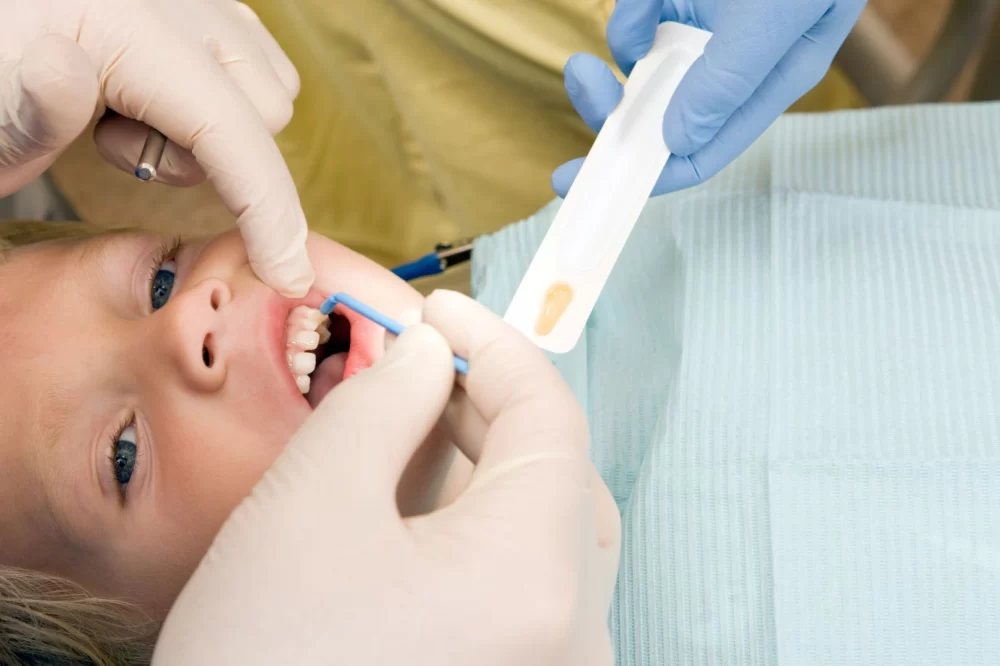
Importance of Fluoride Treatments for Kids and Their Oral Health
As a parent, you want the best for your child's health, and that includes their teeth. While brushing and flossing regularly are essential, many people overlook the significant benefits of fluoride treatments for kids. I’ll never forget the first time my child's pediatric dentist recommended fluoride for her teeth. I was skeptical at first, unsure of how important fluoride really was. However, after learning about its numerous benefits, I quickly realized that fluoride treatments could be a game-changer for maintaining my child's oral health. In this article, I’ll share why fluoride is so crucial for kids and how it can protect their smile for years to come.
What Is Fluoride and How Does It Help Kids' Teeth?
Fluoride is a natural mineral that helps prevent tooth decay by making the tooth enamel stronger and more resistant to the acids found in foods and drinks. For kids, fluoride treatments are a critical part of dental care. It helps to protect their developing teeth, making them more resilient against cavities and other dental problems. Fluoride works by remineralizing the enamel, repairing tiny holes that may have formed before they become large enough to cause significant damage.
Even if your child regularly brushes and flosses, the teeth may still be at risk for decay due to exposure to sugary foods, drinks, or even natural bacteria in the mouth. Fluoride acts as a protective shield, reducing the chances of tooth decay and other dental problems. It’s an easy, cost-effective way to ensure your child’s teeth remain healthy and strong.
The Role of Fluoride Treatments in Preventing Cavities
One of the most well-known benefits of fluoride is its ability to help prevent cavities. Cavities are a major concern for kids since their teeth are still developing and are more vulnerable to decay. As a parent, you may be familiar with the struggle of keeping your child away from sugary foods and drinks, which are some of the biggest contributors to cavities. Even with the best efforts to control their diet, it’s difficult to completely eliminate all sources of cavity-causing bacteria from your child’s life.
Fluoride treatments act as a safety net in these situations. Pediatric dentists often recommend fluoride applications during regular check-ups. These treatments help reinforce the tooth enamel, making it harder for bacteria to erode the teeth. In fact, studies show that children who receive fluoride treatments have fewer cavities compared to those who do not.
Why Fluoride Is So Important for Younger Children
As young children develop their teeth, it’s essential to protect them from damage. Fluoride can be especially beneficial for children between the ages of 2 and 6 years old, as their permanent teeth are still forming underneath the gums. During this time, fluoride helps ensure that their adult teeth come in strong and healthy. Without fluoride, young children are at a higher risk of developing cavities that can lead to costly dental procedures down the road.
Moreover, fluoride treatments are often recommended when a child’s teeth are at higher risk for decay, such as if they have poor oral hygiene, consume a lot of sugary snacks, or live in areas with naturally low levels of fluoride in the water. In such cases, fluoride can significantly reduce the risk of tooth decay.
A Personal Experience: Fluoride's Impact on My Child's Teeth
As a parent, I’ve seen firsthand how fluoride treatments can make a difference. My daughter was about 4 years old when we started regular dental visits. At that time, her pediatric dentist suggested fluoride treatments because she was consuming more sugary snacks than I realized. I agreed, thinking it was a small step, but I never expected the results to be so noticeable.
Over the next few years, my daughter’s dental check-ups went smoothly with minimal issues. No cavities, no gum problems, and even better, no concerns from the dentist! I truly believe that fluoride treatments played a significant role in keeping her teeth healthy. Now, at 8 years old, she proudly brushes her teeth twice a day, knowing that fluoride is protecting her smile. It’s an experience that showed me just how important fluoride treatments are in maintaining a cavity-free childhood.
The Process of Fluoride Treatments for Kids
If you’re wondering what fluoride treatments entail, the process is straightforward and simple. Here’s what you can expect during a typical fluoride treatment session:
1. The Application Process
During a dental visit, fluoride is typically applied to your child’s teeth in the form of a gel, foam, or varnish. The dentist or hygienist will apply it to the teeth using a brush or tray. The process takes just a few minutes, and your child doesn’t need to do anything other than relax while the fluoride sets on their teeth. It’s a painless procedure and usually requires no anesthesia.
2. Post-Treatment Instructions
After the fluoride treatment, your child may be asked not to eat or drink for about 30 minutes to allow the fluoride to fully absorb into the teeth. In some cases, the dentist may recommend additional fluoride products for at-home use, such as fluoride toothpaste or mouth rinse. These products help maintain the fluoride levels in the teeth and continue to protect them between dental visits.
3. Frequency of Treatments
Fluoride treatments are generally recommended every 6 to 12 months, depending on your child’s specific needs and risk factors. Some children may require more frequent treatments if they have a higher risk of cavities or if they live in areas with lower fluoride levels in the water. Your dentist will provide guidance on the appropriate schedule for your child.
Fluoride in Drinking Water vs. Fluoride Treatments
While many cities in the U.S. add fluoride to public drinking water, not all communities have access to fluoridated water. Even in areas with fluoridated water, the amount may not be sufficient to provide full protection against tooth decay. Fluoride treatments in a dental office provide a more concentrated dose of fluoride, which can be more effective in strengthening your child’s teeth and preventing cavities.
Additionally, many children may not consume enough fluoridated water regularly, making fluoride treatments an essential supplement to their overall oral care routine. Fluoride treatments ensure that your child’s teeth get the extra protection they need, particularly during the early years when their teeth are still developing.
The Safety of Fluoride Treatments for Kids
You might be concerned about the safety of fluoride treatments, but rest assured that fluoride is safe and effective when used as directed by a dentist. Overuse of fluoride, such as swallowing too much, can lead to a condition called dental fluorosis, which causes white spots on the teeth. However, this is extremely rare and only occurs in situations where children ingest large amounts of fluoride over an extended period.
Fluoride treatments performed by a dentist are safe, as the dentist will carefully monitor the amount of fluoride applied to ensure it’s the right amount for your child’s needs. The benefits far outweigh any risks when the treatment is administered by a trained professional.







 A&B Scarsdale Family Dental Cosmetic Dentistry2.0 (81 review)
A&B Scarsdale Family Dental Cosmetic Dentistry2.0 (81 review) Mattschei Marcelo W DDS1.0 (1 review)
Mattschei Marcelo W DDS1.0 (1 review) Virginia Biological Dentistry4.0 (250 review)
Virginia Biological Dentistry4.0 (250 review) Peachtree Smile Center4.0 (228 review)
Peachtree Smile Center4.0 (228 review) The Smilist Dental Syosset4.0 (354 review)
The Smilist Dental Syosset4.0 (354 review) TruSMILES Dentistry4.0 (83 review)
TruSMILES Dentistry4.0 (83 review) The Importance of Oral Health Education During Pregnancy for a Healthy Pregnancy
The Importance of Oral Health Education During Pregnancy for a Healthy Pregnancy Best Tips for Brushing Your Teeth Properly for Healthy Gums: Essential Techniques for Oral Health
Best Tips for Brushing Your Teeth Properly for Healthy Gums: Essential Techniques for Oral Health Why Skipping Dental Checkups Can Lead to Bigger Oral Health Problems
Why Skipping Dental Checkups Can Lead to Bigger Oral Health Problems Advantages of Porcelain Dental Restorations
Advantages of Porcelain Dental Restorations How Can Diabetes Cause Tooth and Gum Problems? Preventing and Managing Oral Health Issues
How Can Diabetes Cause Tooth and Gum Problems? Preventing and Managing Oral Health Issues Healthy Habits for Promoting Good Oral Health and Hygiene: Tips for a Healthy Smile
Healthy Habits for Promoting Good Oral Health and Hygiene: Tips for a Healthy Smile